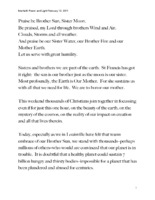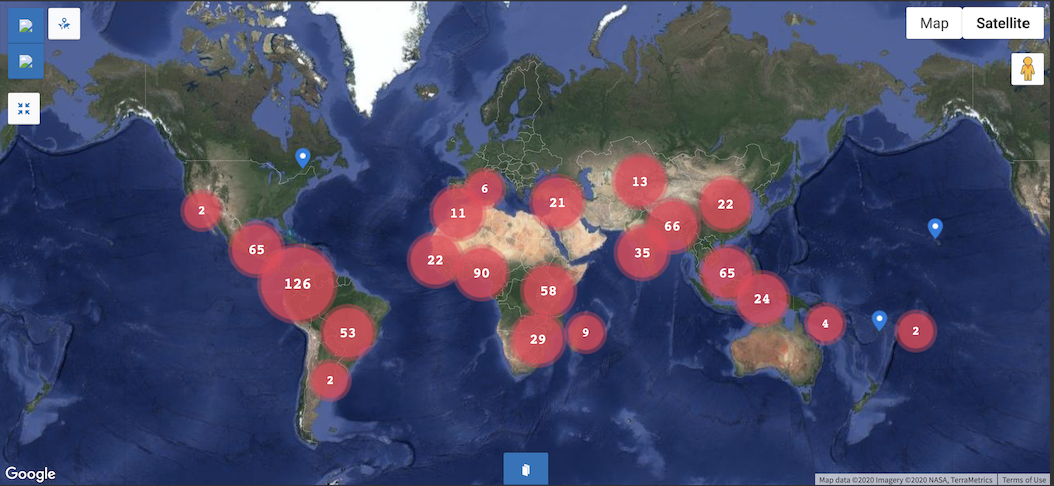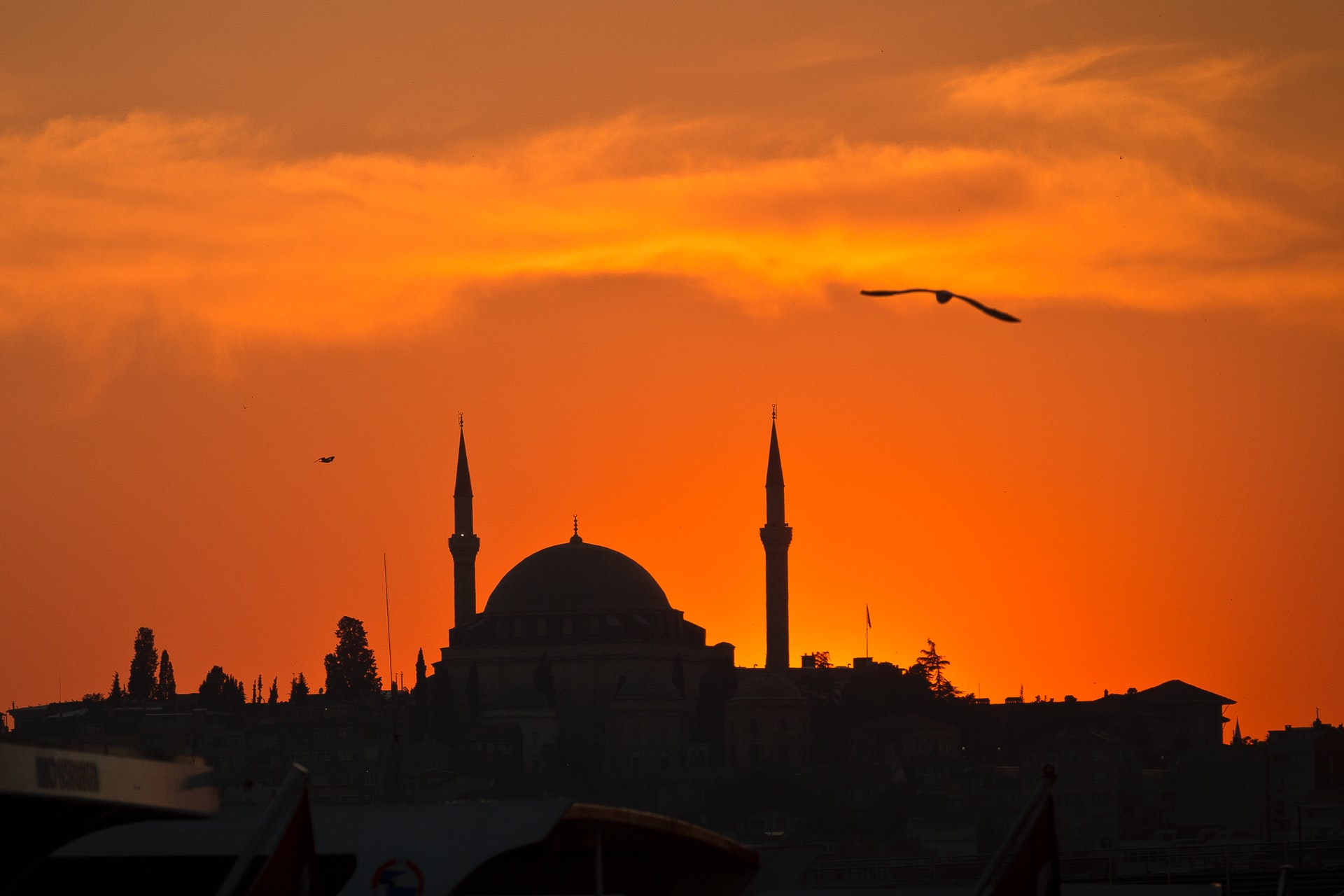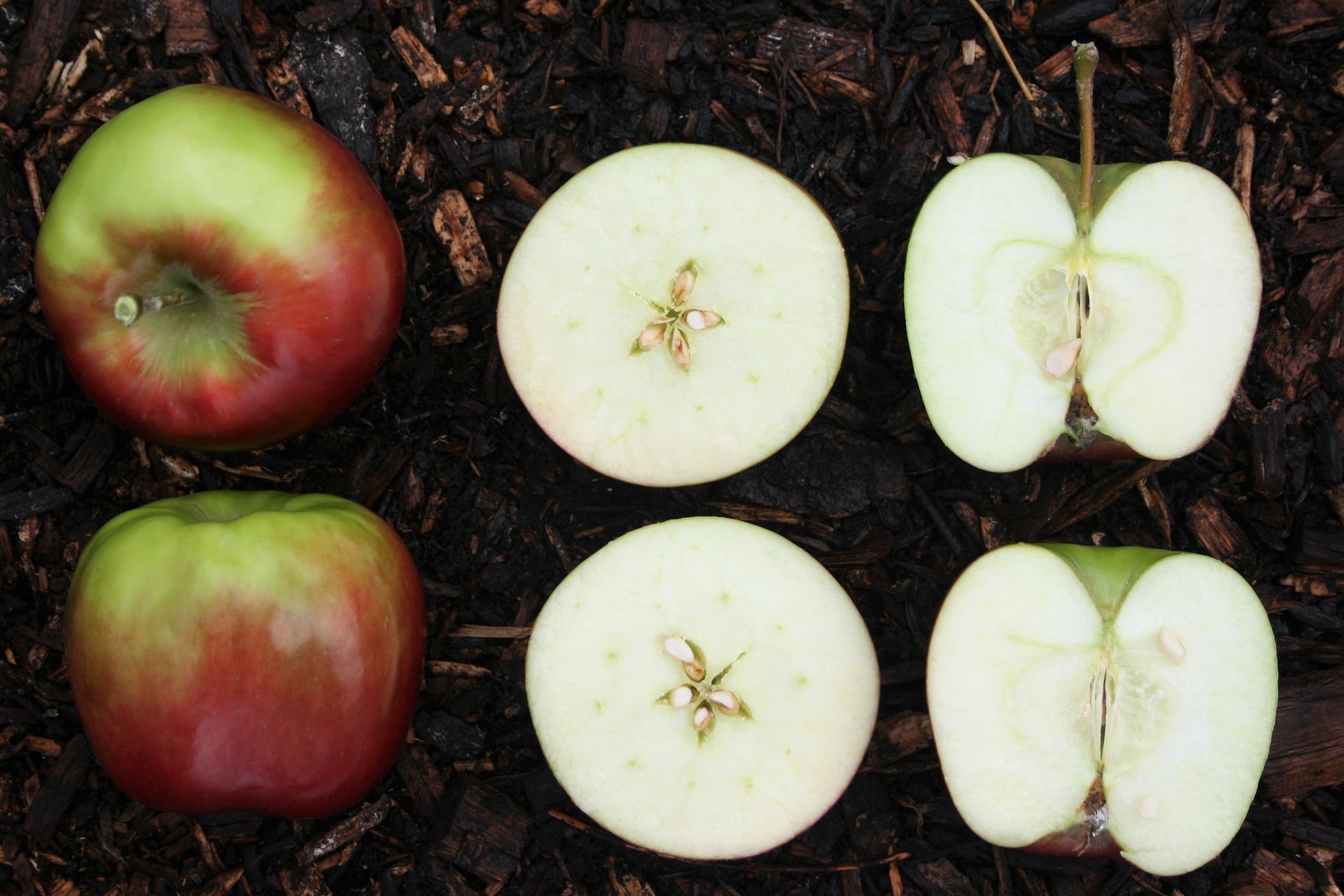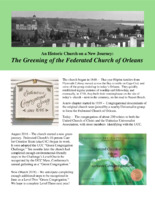Search
134 items
-
ISNA Green Initiative
The “ISNA Green Initiative” was formed in December of 2014 as one initiative for the Islamic Society of North America (ISNA). The group aims to raise awareness of issues concerning the protection and conservation of the environment, as well as promote a sense of urgency with regard to the catastrophic effects of climate change.
The ISNA Green Initiative Team has created a myriad of ways to promote environmental social justice within the Muslim community. The group has developed standards for transforming Masajid into environmentally friendly places of worship and promoting standards for building Masjid that meet the standards of green architecture. One example of their educational programming includes the promotion of the practice of a “Green Ramadan,” designed to reduce waste, conserve resources, and reduce the use of harmful products such as plastic water bottles and styrofoam. Another example includes promoting the use of solar energy to reduce the use of fossil fuels. -
Existentialism an the Ecological Crisis
This segment of The Philosopher's Zone with David Routledge (on the Australian Broadcasting Corporation) focuses on the importance of existentialism in modern times. Specifically, how existentialism can help us understand current relationships between the self and others, as well as with nature. Likewise, the podcast’s contributor, Dr Dalia Nassar points out that existentialism implies a sort humanism (as Sartre argued) that connects each individual to all of humanity through their actions. It is the fact that each of our actions can affect one another is why the existentialists place so much emphasis on how we act. Furthermore, the podcast extends this to the ecological crisis by explaining how this radical humanism can inform how we make environmental decisions. The important point here is that we can derive environmental values based on the inherent freedom that humans have, there is a constant need for action. As the interviewer explains in the podcast, the individual determines the moral future of humanity and nature. Thus, each person has a moral obligation to transcend the current situation and make better choices for the environment. Likewise, there is a special attention to art and literature as a mode of connection, to hopefully shape others moral and environmental values. Therefore, existentialism provides a framework (much like religion) for guiding our actions based on a mutual care for the environment. Finally, I should note that the key points of the podcast (concerning the environment) starts at the 18-minute mark, while the latter half provides background knowledge on existentialism. -
Ancient Judean Dates
A date tree planted in Ketura, Israel from 2000 year old seeds found at an archeological site in the Judean wilderness has finally bore fruit earlier this month (September 2020). The harvest was hailed a modern miracle of science. “In these troubled times of climate change, pollution and species dying out at alarming rates, to bring something back to life from dormancy is so symbolic,”... Date palms were praised in the Bible and the Quran, and became symbols of beauty, precious shade and succulent plenty. -
Engaged Organizations: Global Oneness Project
The Global Oneness Project was founded in 2006 as an initiative of Kalliopeia Foundation, and is focused on education aimed a planting seeds of empathy, resilience, and a sacred relationship to our planet. They are passionate about the power of stories and offer a rich library of multimedia stories comprised of award-winning films, photo essays, and essays as well as companion curriculum and discussion guides focused on world culture, social justice and sustainability. -
Seeing true nature: Buddhism and the environment
John Worthington-Hill describes how Buddhism can encourage environmental awareness and sustainability. Embracing individuality is our disconnection from the natural world. In order to live in unity with the earth, we must find the 'middle way' (a buddhist morality based on self-discipline). "Self-centeredness is the great illness from which all imbalance, insensitivity and abuse ultimately stem – an illness directly linked to the Buddha’s ‘three poisons of greed, ill-will and delusion’. These poisonous mentalities seep into the collective consciousness and are instilled in the norms and structures of culture and society, helping to direct how politics and economics deal with the environment." "Environmental destruction is therefore an outer manifestation of an inner affliction. If our thoughts are polluted, then our actions will be polluted too, and so will their consequences." -
Five Years After Speaking Out on Climate Change, Pope Francis Sounds an Urgent Alarm
This article covers Pope Francis's reaction to the world governments responses to climate change. The Pope writes to unite people through religion in an effort to bring awareness to the movement. The article details how the church is divesting in fossil fuel companies. The article also focuses on the political divide and how it affects people's views on the climate crisis. -
GOP Rep. Mike Simpson: "It’s my party, and I’ll fight climate change if I want to"
An article published on Grist.org that covers Congressman Mike Simpson's views on salmon conservation. Simpson's statements are noteworthy for sustainability and religion as he is going against Republican party views by acknowledging an issue with climate change and the environment with his religious views. It is reported that his speech was obviously fueled by a spiritual obligation to preserve salmon as he describes salmon as incredible God created creatures and that their cycle of life should not be messed with. It is also important to note he was already elected for his 11th term in the house, so it is less likely that his more left leaning statements come from a desire to secure votes. -
Himalayan Institute
Founded in 1969 by the great teacher and humanitarian, Swami Rama, the Himalayan Institute acts on the basis of yoga tradition and Eastern spirituality. Through the living connection to an ancient wisdom tradition of the Himalayan Masters, and the guidance of spiritual head Pandit Rajmani Tigunait, the Himalayan Institute seeks to serve communities across the globe of those who seek to live their spiritual values. The institute provides resources for anyone seeking spiritual wellness such as yoga and meditation training, local retreats and seminars, and domestic and international excursions, frequently taking the form of a trek through the Himalayas. The Himalayan Institute strives for sustainable living in partnership with the community in Honesdale and also in their projects in India and Africa- providing sustainable living, jobs, and farming in several different communities. -
The “Green Team”, Community Synagogue of Rye
The “Green Team” at the Community Synagogue of Rye in Westchester, New York works to create projects that focus on sustainability within their congregation, and in the surrounding community. Through renewable energy initiatives, community supported agriculture, youth involvement, group nature hikes, and other related projects, the Green Team approaches environmental stewardship through the lens of Jewish teachings and scripture. They work closely with the Westchester Jewish Greening Group, a related religious environmental organization, in efforts to bring more sustainable, “greener” practices to the Westchester County community. Through these activities and initiatives, the Green Team works to live out the value of Tikkun Olam - ‘repairing the world’. -
How to Green your Parish
This article is about the importance of parishes to participate in environmentally sustainable actions based on Pope Francis’s Laudato Si’. It encourages parishes to strive to become more eco-friendly by taking work together as a community and focusing on change one issue at a time. The article focuses on three main areas: reducing the parishes greenhouse gas, sustaining food and land use, and preserving water. -
The Wisdom of Houseplants
There has been a recent rise in the popularity of houseplants. This resource relates aspects of tending to houseplants to different ways you can be more mindful about your own life. Through caring for the houseplants, this web page reminds you to be adaptable, to be patient, and to expand yourself. While also additionally reminding the reader that letting go and paying attention to your physical health are both key in positive personal growth. -
Dalai Lama's 10 Rules for Success
This video is the Dalai Lama speaking of how to calm ones mind as well as how to connect with the universe through inter connection of self and creation. -
Brother Sun, Sister Moon
Pastor Michael Mernagh delivered this sermon that relates the planets and elements to family members. He does this to encourage his audience to treat the environment as family. Father Michael passionately describes how humans have been harming the environment and advocates for his audience to change their attitude in order to make better choices. -
Nature-Based Solutions Database
As a part of the Equator Initiative and the UNDP (United Nations Development Programme), the Nature-Based Solutions Database connects communities through sharing thousands of viable eco-solutions from 500+ communities across five continents.
Explore the Solutions Database to learn how outstanding local communities and indigenous peoples around the world are making possible the achievement of the UN Sustainable Development Goals through nature-based actions.
-
Conference of the Parties (COP)
The COP is the supreme decision-making body of the Convention. All States that are Parties to the Convention are represented at the COP, at which they review the implementation of the Convention and any other legal instruments that the COP adopts and take decisions necessary to promote the effective implementation of the Convention, including institutional and administrative arrangements. -
Federation of Zoroastrian Associations of North America (FEZANA)
FEZANA is a non-profit religious group registered in the state of Illinois and formed to function as the coordinating organization for Zoroastrian Associations of North America. It serves as the coordinating body for 27 Zoroastrian Associations in the United States and Canada.
On this website, you can learn more about the community of FEZANA , Zoroastrianism, their sustainability reports and other social activities.
-
Green Muslims Ramadan Toolkit
Ramadan is a time to reflect, exercise self-control, and cultivate connections to one's faith. This three-part toolkit hopes to enhance the Ramadan experience using those same concepts but building more environmentally friendly habits while connecting one
with their faith in a unique way.
Each day highlights an Ayah, a quote, or a hadith that aspires to inspire you to action. The “challenge yourself” section of the day gives you a suggestion on how to adjust your habits, and the “reflection” section hopes to help you analyze your current habits in order to make the habit-forming both action-oriented and intellectual. -
Green Umbrella Impact Team: Faith Communities Go Green
MISSION: Partnering with religious communities to create a more sustainable and equitable future for all by mobilizing their moral voice to reduce the risk of catastrophic climate change.
VISION: Religious communities collaborating to integrate care for creation in their lives and society. -
Free Webinar: Learn Ways to Lower Your Facilities Utility Bills
This event is hosted by the Green Umbrella Impact Teams in collaboration with Faith Communities Go Green
Date and time: June 7, 2021 7:00 -8:30 pm
Learn about different types of energy audits, renewable energy choices and PACE financing for nonprofits. There will be opportunities for focused conversations in smaller breakout sessions.
Who should attend?
Executive directors, building supervisors and congregational members: Everyone is welcome. -
Ecological Consciousness in Jainism: Exploring Realities, Constraints, and Traditions
This paper explores the traditions and philosophies of Jainism and how that influences its connection to the environment. The author explains the Jainism cosmology and the distinction between different senses as they apply to animate and inanimate beings. Jain literature understands human connections to the world with an emphasis on the interconnectedness of life forms. To Jains, environmental concerns cannot be separated from socio-economic concerns. -
The 12 Principles of Permaculture: A Way Forward
This blog article describes the basics of permaculture (permanent culture). Permaculture is rooted in the observation of natural systems and indigenous knowledge. The author introduces the solution permaculture offers to help us transition to a more resilient, ethical, and sustainable future better for the planet and its inhabitants. -
Wendell Berry and Ellen Davis: The Art of Being Creatures (Episode from On Being)
In this intimate conversation between Krista and one of her beloved teachers, we ponder the world and our place in it, through sacred text, with fresh eyes. We’re accompanied by the meditative and prophetic poetry of Wendell Berry, read for us from his home in Kentucky: “Stay away from anything / that obscures the place it is in. / There are no unsacred places; / there are only sacred places / and desecrated places. / Accept what comes of silence.” -
On Being with Krista Tippett
The On Being Project is a nonprofit media and public life initiative. We make a public radio show, podcasts, and tools for the art of living. Six grounding virtues guide everything we do. We explore the intersection of spiritual inquiry, science, social healing, community, poetry, and the arts. We’re offering ongoing special content for this moment, including conversations about race and healing, “care packages” for care givers and uncertain times, and a new way to experience poetry.
A Peabody Award-winning public radio show and podcast. What does it mean to be human? How do we want to live? And who will we be to each other? Each week a new discovery about the immensity of our lives. Hosted by Krista Tippett. -
Soul Search with Dr. Meredith Lake
Soul Search explores contemporary religion and spirituality from the inside out — what we believe, how we express it, and the difference it makes in our lives.
Airs Sunday 6 pm Repeated: Wednesday 11 pm, Thursday 12pm.
You can listen to this podcast on platforms such as Apple Podcasts, Google Podcasts, and ABC Listen App. -
The Greening of the Federated Church of Orleans
The church began in 1646 – That year Pilgrim families from Plymouth Colony moved across the Bay to settle on Cape Cod, and some of the group ended up in today’s Orleans. They quickly established regular patterns of worship and fellowship, and eventually, in 1718, they built their meetinghouse on the site of today’s church – next to the cemetery, on the road to Nauset Beach.
August 2016 – The church started a new green journey. Federated Church's 10-person Care for Creation Team (aka C4C) began its work. It soon adopted the UCC “Green Congregation Challenge.” Ten months later the church had completed enough environmental-friendly steps in the Challenge’s Level One to be recognized by the UCC Mass. Conference's annual gathering as a “Green Congregation.”
Now (March 2018) – We anticipate completing enough additional steps to be recognized in June as a Level Two “Green Congregation.” We hope to complete Level Three next year!













